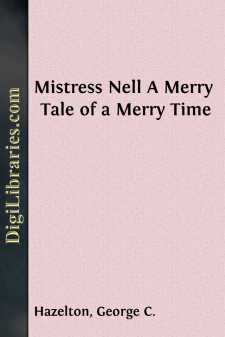Categories
- Antiques & Collectibles 13
- Architecture 36
- Art 48
- Bibles 22
- Biography & Autobiography 816
- Body, Mind & Spirit 145
- Business & Economics 28
- Children's Books 17
- Children's Fiction 14
- Computers 4
- Cooking 94
- Crafts & Hobbies 4
- Drama 346
- Education 58
- Family & Relationships 59
- Fiction 11834
- Foreign Language Study 3
- Games 19
- Gardening 17
- Health & Fitness 34
- History 1378
- House & Home 1
- Humor 147
- Juvenile Fiction 1873
- Juvenile Nonfiction 202
- Language Arts & Disciplines 89
- Law 16
- Literary Collections 686
- Literary Criticism 179
- Mathematics 13
- Medical 41
- Music 40
- Nature 179
- Non-Classifiable 1768
- Performing Arts 7
- Periodicals 1453
- Philosophy 66
- Photography 2
- Poetry 897
- Political Science 203
- Psychology 45
- Reference 154
- Religion 516
- Science 126
- Self-Help 85
- Social Science 82
- Sports & Recreation 34
- Study Aids 3
- Technology & Engineering 59
- Transportation 23
- Travel 463
- True Crime 29
Our website is made possible by displaying online advertisements to our visitors.
Please consider supporting us by disabling your ad blocker.
Mistress Nell A Merry Tale of a Merry Time
Description:
Excerpt
MISTRESS NELL
“And once Nell Gwyn, a frail young sprite,
Look’d kindly when I met her;
I shook my head perhaps–but quite
Forgot to quite forget her.“
It was a merry time in merry old England; for King Charles II. was on the throne.
Not that the wines were better or the ladies fairer in his day, but the renaissance of carelessness and good-living had set in. True Roundheads again sought quiet abodes in which to worship in their gray and sombre way. Cromwell, their uncrowned king, was dead; and there was no place for his followers at court or in tavern. Even the austere and Catholic smile of brother James of York, one day to be the ruler of the land, could not cast a gloom over the assemblies at Whitehall. There were those to laugh merrily at the King’s wit, and at the players’ wit. There were those in abundance to enjoy to-day–to-day only,–to drink to the glorious joys of to-day, with no care for the morrow.
It was, indeed, merry old England; for, when the King has no cares, and assumes no cares, the people likewise have no cares. The state may be rent, the court a nest of intrigue, King and Parliament at odds, the treasury bankrupt: but what care they; for the King cares not. Is not the day prosperous? Are not the taverns in remotest London filled with roistering spirits who drink and sing to their hearts’ content of their deeds in the wars just done? Can they not steal when hungry and demand when dry?
Aye, the worldly ones are cavaliers now–for a cavalier is King–e’en though the sword once followed Cromwell and the gay cloak and the big flying plume do not quite hide the not-yet-discarded cuirass of an Ironside.
Cockpits and theatres! It is the Restoration! The maypole is up again at MaypoleLane, and the milk-maids bedecked with garlands dance to the tunes of the fiddle. Boys no longer serve for heroines at the play, as was the misfortune in Shakespeare’s day. The air is full of hilarity and joy.
Let us too for a little hour forget responsibility and fall in with the spirit of the times; while we tipple and toast, and vainly boast: “The King! Long live the King!”
Old Drury Lane was alive as the sun was setting, on the day of our visit to London Town, with loungers and loafers; busy-bodies and hawkers; traffickers of sweets and other petty wares; swaggering soldiers, roistering by, stopping forsooth to throw kisses to inviting eyes at the windows above.
As we turn into Little Russell Street from the Lane, passing many chairs richly made, awaiting their fair occupants, we come upon the main entrance to the King’s House. Not an imposing or spacious structure to be sure, it nevertheless was suited to the managerial purposes of the day, which were, as now, to spend as little and get as much as may be. The pit was barely protected from the weather by a glazed cupola; so that the audience could not always hear the sweetest song to a finish without a drenching, or dwell upon the shapeliness of the prettiest ankle, that revealed itself in the dance by means of candles set on cressets, which in those days sadly served the purposes of foot-lights.
It was Dryden’s night. His play was on–“The Conquest of Granada.” The best of London were there; for a first night then was as attractive as a first night now. In the balcony were draped boxes, in which lovely gowns were seen–lovely hair and lovely gems; but the fair faces were often masked.
The King sat listless in the royal box, watching the people and the play or passing pretty compliments with the fair favourites by his side, diverted, perchance, by the ill-begotten quarrel of some fellow with a saucy orange-wench over the cost of her golden wares. The true gallants preferred being robbed to haggling–for the shame of it....


